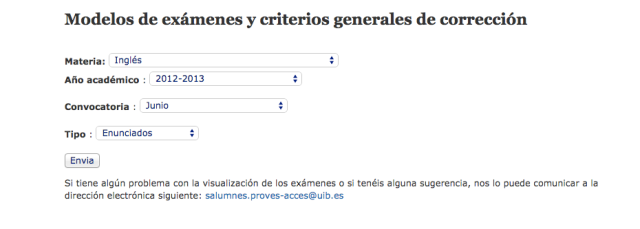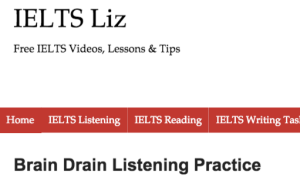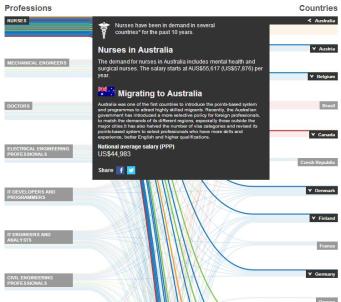 In 3.64 we published all the exams you had to take this year: two per term, plus the global test for those of you who did not pass. As you know, throughout the course you also had to take three oral exams. In this post you can see some of the images that were used to prompt your response in the third term oral test. They cover some of the topics we worked on this year. Those of you who have to take the exam again in September can use them to practice and gain more confidence.
In 3.64 we published all the exams you had to take this year: two per term, plus the global test for those of you who did not pass. As you know, throughout the course you also had to take three oral exams. In this post you can see some of the images that were used to prompt your response in the third term oral test. They cover some of the topics we worked on this year. Those of you who have to take the exam again in September can use them to practice and gain more confidence.
-
Recent Posts
Archives
- June 2015
- May 2015
- April 2015
- March 2015
- February 2015
- January 2015
- December 2014
- November 2014
- October 2014
- September 2014
- May 2014
- March 2014
- January 2014
- October 2013
- March 2013
- January 2013
- December 2012
- November 2012
- October 2012
- March 2012
- February 2012
- January 2012
- December 2011
- November 2011
- October 2011
- September 2011
- May 2011
- April 2011
- March 2011
- February 2011
- January 2011
- December 2010
- November 2010
- September 2010
Categories
Meta
April 2024 M T W T F S S 1 2 3 4 5 6 7 8 9 10 11 12 13 14 15 16 17 18 19 20 21 22 23 24 25 26 27 28 29 30 Categories
- although
- Anthropology
- Aung San Suu kyi
- BBC
- Benidorm
- brain
- Christmas
- computers
- Dating
- decline
- despite
- digital stories
- Egypt
- emotions
- empathy
- environment
- equality
- exam
- exams
- false friends
- feelings
- flirting
- fossil fuels
- friendship
- gender
- gender gap
- glass ceiling
- global gender gap
- grammar
- guess the google
- Hans Rosling
- headlines
- Helen Fisher
- in spite of
- jobs
- leisure
- listening
- love
- Margaret Mead
- media
- music
- Musicophilia
- new media
- newspapers
- Oliver Sacks
- on line activities
- parity
- phonetics
- pink stink
- political corectness
- pronunciation
- questionnaire
- reading
- role models
- Saadia Zahidi
- sexism
- social media
- sports
- statistics
- summaries
- Sustainable tourism
- Tahrir Square
- TED
- thesaurus
- threads
- Viktor Hertz
- visualisation
- vocabulary
- Wael Ghonim
- waterpebble
- wiki
- wikileaks
- wikipedia
- words
- writing










You must be logged in to post a comment.